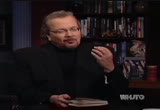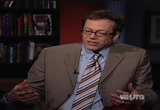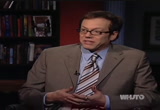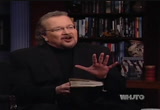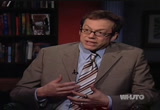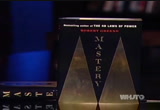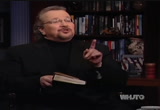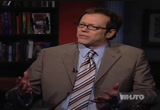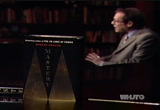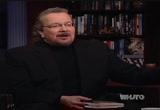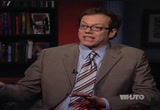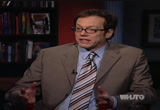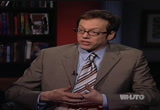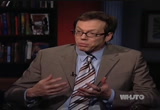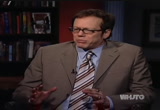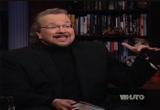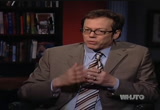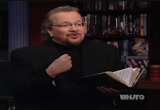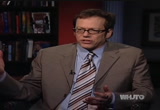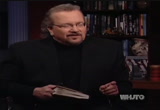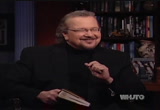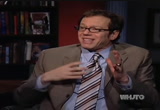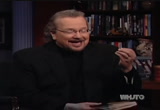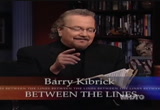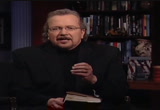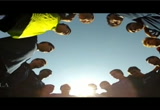tv Overheard With Evan Smith WHUT January 31, 2013 8:30am-9:00am EST
8:30 am
barry kibrick: today on "between the lines," you'll see how the ultimate power of mastery is within your reach when you meet robert greene. welcome. i'm barry kibrick. robert is making his fourth appearance on "between the lines." his best-selling book, "the 48 laws of power," is a classic and has been read by many of the most influential people in the world. now with his book "mastery," he distills the wisdom of the ages, revealing that we all possess the secrets to mastery within us and the keys to unlock and release that power. woman: i'm a writer today because i was a reader when i was 11 years old, and it was... man: you do not need to prove your state of happiness to anybody. man: most of these speeches were as much as a month in preparation. man: characters, the heroes in this book are seekers of truth
8:31 am
in a story that involved a lot of corruption. man: i don't get a chance to really talk about what's real, and that is important to me. barry: robert, welcome back. this is the fourth appearance on this show. and i'm as excited as i was on the first one. robert: well, thank you for having me. it's a pleasure and a deep honor. thank you. barry: robert, this book--i was talking with my son. and i said, "even the first few pages you begin to taste where you're going. and how you're going to lay this out for us. map literally out this course of mastery. "and then you finally realize that what robert's really talking about is the ability for all of us to become masters. robert: right. yes, i always sort of write better when there's a little bit
8:32 am
of anger in me. let's put it that way. or i'm annoyed. and what starts to annoy me even in books like "outliers"-- which is a great book-- is this notion that there's this genetic component or it's statistics or it's luck or you were born in this year or you had these parents or they sent you to that school. and that plays the major role in the success you're having in life. and i've been redoing research on masters and powerful people for 16 years. and that is not the anecdotal evidence that i'm coming up with. these are people who go through a deep learning process, who are so connected to what they're studying that they absorb lessons faster, they learn quicker, and they reach mastery. if you know that process, if you know some of the steps that i'm going to reveal in the book, it's open to anyone. and one of the people i profile in "mastery" is temple grandon who was born with autism. if someone born with autism can reach this level of mastery, who couldn't reach it?
8:33 am
barry: well, that's what you get. you really begin to believe that you know you can do this. i mean, it's a powerful feeling by the way. robert: yeah. well, i'm trying to ground it in 6 million years of evolution. this is how the brain evolved so long ago when our most primitive ancestors were struggling with a very intense struggle to survive. and the brain developed in a certain way toward mastering the environment, towards learning something so well that you have a feel for it--an intuitive feel, in this case, for hunting, for the environment. it's hardwired into our brain. this power is hardwired in there. and it's a process of awakening it. and thank god we live in the 21st century where it's a power that's now open to men, women, any ethnicity, anybody. barry: you said these words-- "it feels as if it has it's own external reality." and while i was reading this, the masters that you really study through
8:34 am
here--past and present, by the way--you get this, how can i say it, almost religious, spiritual sense. i can't quite put my word on it. because you dance around that yourself a little bit. ok. but you sense that there is a calling. that there is a mission. that there's almost a destiny that each one of us--and you specifically state that it's so important to realize our uniqueness. that each one of us in our own unique way has this. and we must. this is the part that struck me. you have no choice. you literally almost, almost imply do it or die. i don't mean that. but it's so important that we tap into this. robert: yes, i mean, the one thing--i'm trying radically shift your perspective on who you are and your whole concept of what makes you happy and fulfilled in life, trying to build in this idea
8:35 am
that there's a vocation for you, that you have a calling in life, that it stems from something deep inside you. that, as you say, you're born unique. and in childhood, in your early years you're kind of in tune with this, you're drawn to sports, to chess, to mathematics, to music. something draws you. for me, it was history and writing. you can't explain it. it's pre-verbal. it's so powerful. and as you get older, that voice gets weaker and weaker and weaker. you listen to your parents, you listen to peers. when you're in your 20s, your 30s, you don't know who you are, you followed the wrong career path. you're a lawyer but you don't to be a lawyer. you're lost. and it gets too late to regain it. and this is a book about really connecting to that primal curiosity that you have. einstein talks about this. you're like a child. everything makes you feel awe-inspired. connecting with that and redesigning your career to at least mesh with this.
8:36 am
barry: it's not easy. robert: no. barry: and that's, in fact, if there was one word that kept coming up from all was it takes persistence--as you said--sheer persistence. it is a non-stop journey. it's not a conclusion by the way. when eli--my son-- and i were talking, it's not an end point. you do not "become a master." i mean, of course we consider people masters. but this is really a journey that takes place throughout your life. and it's never too late. robert: i discovered in the research--and i interviewed 9 contemporary masters forhis book--that the people who really get far in life, really achieve something, it's not that they're so goal driven. they don't think, "i want to become a master. i want to write this great book." they're actually people who enjoy the process of their work. like, i enjoy putting the book together, researching it, building it. if all i thought about was the end and getting money and
8:37 am
attention and being on "barry kibrick," it wouldn't work. you have to actually literally enjoy the details that are involved in your work. and how do you do that? well, you choose a career that at least excites you in some way where you can handle the setbacks, the tedium, the practice, the boring hours. it's inevitable. if you want to be a great violinist, you're not going to be born that way. you have to put in the 10,000, the 20,000 hours. and the more you do it, the more pleasurable it becomes, the more pleasurable it becomes, the harder you practice. barry: you call it discovering your life's task. and, in fact, it's the step that actually precedes the steps toward mastery in a certain way. it's something that you must do that before you can go into what we'll say the apprenticeship and all the different levels later on, which we'll talk about. you must discover that task. and by the way, as you say here too, it's not necessarily this light bulb goes off.
8:38 am
it could happen from so many different modes and so many different ways and over such a different span of time. it could happen quickly. it could take a while to find out one's life's mission. robert: i talk in the book about martha graham, the great dancer who totally revolutionized the world of dance. and she was interested in theater as a child. but her father was a psychiatrist who studied insanity. and he would always come home and talk about body language and how he could read body language and sense if someone was possibly criminally insane. and she was fascinated by this idea of body language, theater. but she didn't know what she wanted to do. then she saw her first dance performance when she was 17 and 18. and then she realized this could be something where i could express and go into all these really primal interests that i have. and it was something that she didn't really develop until she's in her 20s. it doesn't necessarily happen in one moment. it's a process that you go through. but you have to be
8:39 am
self-aware and connected to who you are. barry: you know, here's the words that caught my mind. "the principle is simple." and this is when we already start going into the levels of mastery, the apprenticeship level. "it's transformation of your mind in character." and i thought, wow. that's interesting. the principle is simple. but the transformation of your mind and character, that's not simple. robert: right. well, you know, that's sort of a line for the apprenticeship phase, where i'm saying, you enter life. you leave college. you leave the house, the home. and you're basically a naive person that's disconnected from reality. you don't have your feet on the ground. you don't understand people. you don't understand politics and the social- political environment in a work world. you're starting at zero. and you're slowly going to transform yourself into someone who's realistic, who has skill, who has discipline, who has self-mastery. and so really, you're transforming yourself through this process. and you
8:40 am
have to literally feel like you're starting over once you enter the work world. if you enter thinking that you know something, that you're already smart, you're 3 steps back. so it literally is a process of transforming yourself. barry: well, in this apprenticeship stage, which is this--as i said--once you find your life's task and you begin to apprentice, one of the key things you say we must apprentice ourselves in is failure. because that is-- if there's a common denominator through everyone who's achieved mastery--in fact, thomas edison, who you use, failed more than anyone in the history. i remember that great line when they said to him, "how did it feel to fail 1,000 times to invent the light bulb?" and he said, "i didn't fail 1,000 times. i learned 999 times how not to do it." robert: well, i often have the thought. i don't know quite how to articulate it. but it's the negative experiences in life, when things don't work,
8:41 am
that eyes open, that you actually, literally learn. you learn through the lessons and the things that you didn't do right. and i talk in the book about henry ford, the guy who invented the automobile industry as we know it. this is a man who started his own business in the 1890s. it failed miserably. and in the automobile industry, you generally got one chance. he found investors a second time. failed a second time. now that was usually the end of anybody's career. he tried a third time, and the third time succeeded. and his whole attitude was "i needed these failures in order to learn, in order to build some character in order to know what i didn't want to do. in order to know keep the financiers out of the design process." you need those negative lessons in life to sort of show you the way. you need to embrace them. barry: well, that's why it's so important to feel the passion about it. because otherwise, you would give up, you would quit if
8:42 am
you didn't realize that this was "a calling," "a destiny," "a mission." however you want to phrase it. you would just--i failed once. maybe you would have enough guts to go the second time. but the question is do you have enough to go the third, the fourth, the fifth. because it takes years to figure all this out. and even though as you say, sometimes it'd be great if we could find a mentor. but even that, as you say in the book, it's still your self-directed apprenticeship. it's not something that, you know, someone is going to come to you and just sweep you up and say, "i'd love to mentor you." i mean, maybe one in a million. but not for most of us. robert: yes. one of the big examples in the book that i love is charles darwin, in the sense that he seemed sort of a lost child. his father thought he was a little bit dull witted. and then he goes on this voyage around the world to south america and eventually to the galapagos when he discovers his calling as a naturalist, as a
8:43 am
scientist. and basically hits upon the theory of evolution at the age of 26. and then he proceeds to spend the next 35 years of his life proving this one theory. and you have no idea how tedious that was. he spent 8 years studying barnacles alone. he never lost hope. he never got depressed or lost his energy. because he was so excited by the discovery process, by what he intuited as a 26 year old, that he has this incredible patience. also the incredible criticism he had to endure for this revolutionary theory. so only by feeling personally connected to what you're doing, to feel engaged in it. and it applies to science as much as to art. to be able to withstand the criticism and the negative process of mastery. barry: one of the things--in fact, right next to being able to withstand. i think the word you
8:44 am
use is this "connectiveness." and masters can make these different connections that then become the whole. and i think that's one of the things that allows you to have that endurance is because, it's not so much as a single focus as it is connecting all those dots that help you develop the strength, the seasoning, the wisdom to achieve the goal. robert: yes, also the brain--i'm really obsessed with the brain in this book. 'cause i'm trying to tell you that you have this tool. this tool is the brain. and it's sort of built for bringing you to mastery. so the more--it's not just knowledge. it's also experiences that you need. and the more you allow, you feed the brain this natural power, the more it will reward you with this sort of creative energy. barry: but there is so much pain. i want to read a few of the things in regards to that. these are your words. "the only real impediment to mastery is yourself and your emotions. you cannot suppress
8:45 am
such emotions. they are normal to the process. what you can do is have faith in the process." and you even state that frustration is a sign of progress. but, you know, that doubt--when you doubt your mission, i must tell you, there's probably no greater pain--except the death of a loved one or something of that nature. robert: yeah, but it's all how you look at it. so let's say for instance that you're learning the piano or you're writing a piece of music and it's not working out. something isn't right. you've hit a block. i hit these blocks in my writing. if you have the attitude, oh, damn, i'm not good enough. this is wrong. i don't know what i'm doing, you're going to find yourself turning that into an even more negative experience. if you stop and you say, the fact that it's not working, it's not working for a reason. and i'm going to push passed this moment and find out how i can make it work.
8:46 am
and i always find in my writing, that i use the frustration and the blocks to actually help make the work much better. but i don't ever let it get me down. so it's as you said, trusting the process. the brain goes through a process of learning. the more you're exposed to something, the better you understand it, the more skill you will develop. you have to sort of trust that that's going to happen. barry: now you added something that i thought when you think of what some masters do, you almost think that they're operating in a vacuum. but the truth here is there's a social intelligence that you say without that, you can't really achieve the mastery. and social intelligence--sometimes you don't think of the "geniuses of our time," which is different. mastery, as you said, is different than genius. but that part caught my attention for some reason really strongly. robert: well, i don't want to give people the impression that mastery is only about the sort
8:47 am
of geeky, knowing enough about your field and being some great computer engineer. we humans are the finest social animals on the planet. we are definitely defined as social animals. it's the source of our power. the ability to read other people's minds. they call this the "theory of mind." that i can put myself inside the head of barry kibrick right now and sort of try to imagine what he's thinking. there's no other animal that has it. we developed this power. i go into the science behind it. the whole concept of mirrored neurons. and what that really means. you can't divorce who we are from the powerful social instincts and intuitions that we have. and the problem that we have in the world today is that people don't develop that side of their character. they don't know how to read people. they don't know how to sort of stop that interior monologue and focus on the other person and try to get inside their skin and use their natural empathy. it also helps you develop political skills,
8:48 am
the social skills that you need. and you know how you need that in your work world and i need it in my work world. it helps develop all sorts of aspects of your brain. as a writer, having empathy helps me get into characters. i want to give you the idea that the brain is this interconnected organ. and the social and emotional and intellectual parts are all equally important. and if you try to divorce them, you're not going to get to the mastery level. barry: you know, i want to read your words here. you say,o read "masters inevitably possess another quality that complicates the process. they are not easily satisfied by what they are doing." an interesting dichotomy. and one that you can see would cause someone who is striving for their mission the biggest problem of all. and you say, you have to have the ability to reverse those emotions. when you see the setback, you must look at it not as a setback but as a new point to the journey. you've got that
8:49 am
writer's block. you can't look at it as a negative. you got to look at it as a positive. it's good that i have this writer's block. i'm going to now think of a way to get out of this. and those are the connections that then--those synapses just keep flying around. robert: that's right. and the example that comes to mind when i say that is the great architect santiago calatrava who i interviewed for this book. and calatrava would say the greatest danger he faced in designing a building is after 5, 6 years of working on a project, it would go stale. and it no longer felt alive to him. he didn't know why he was doing it. it was a terrible feeling. and so whenever that happened to him, he would reassess it, throw everything out. he would throw out all the drawings, all the 6 years of work, and start all over. and people would look at him like he was crazy. he did it because he had to get back to that sort of freshness that he needed to be more creative and in the moment. and he said, "i didn't care. i don't care if i have to throw
8:50 am
out 6 years of work. the feeling of making it better and being more alive and in the moment is what matters." i thought that was sort of a powerful way of expressing it. barry: yes. especially since, as i said before, the doubt is such a powerful feeling when you have it. it requires such belief literally to turn that stuff around. robert: you need that internal voice. you need to be critical with yourself. you can be over critical. you can be a perfectionist and go too far. but look at someone like a steve jobs. he internalized that voice. he was incredibly self-critical. he kept pushing himself further and further on each design he was involved in. and look at the end result. so i'd rather err more on the side of hearing that critical voice than not having one at all. barry: i think that critical voice is so important when you don't internalize it and blame yourself. see, that's when i think you then become that paralysis of analysis, as you said. you become too much of a perfectionist. you're not going to let it go. and then if you don't and you just keep-- you don't ever finish anything. so there is a nice balance.
8:51 am
you must have that doubt. but you must have that strength to let it go enough to move forward. robert: well, deadlines help a lot. i know with writing books or whatever, living in the real world, you have only 2 years to write your book. you have only so many years to be alive. a good deadline will usually cure you of that procrastination. barry: i have to laugh because my wife and i, we joke. i always give myself 90 days. and i tell you, i don't mind failing. at the end of 90 days, i didn't succeed at that particular time. i'll give myself another 90 days. and i'll give myself another 90 days. robert: that's very good. that's why you're a master. barry: oh, please. thank you anyway. i'll take it. i'm taking that one to the bank. but, robert, as much as we strive for mastery and willing to put in the time and patience, there was one thing you said in here. and that was we must allow for
8:52 am
serendipity. and i thought, wow. because so much of life really is random and not in our control. we have to be aware of it when it comes our way. robert: you're right. that kind of gives you the ultimate power. because you don't control everything. and i basically frame it this way. the human being as it evolved is the supreme opportunist in nature. that's how our brain became what is, how we emerged from being this weak little creature to these powerful animals that rule the world. we're supreme opportunists. we come upon a rock. it looks a little different. we realize that that rock could be a weapon, could be a scavenging tool, could turn into a knife. that's how our brains operate naturally. we see everything around us. uh, what can that do? how can we use this or that? and scientists are the supreme opportunists. they use serendipity all the time. i talk about thomas edison. he hears a funny sound on the telegraph. and he realized that
8:53 am
funny sound could turn into the invention of the phonograph and recording the human sound. what person on the planet would ever connect those 2 things? hearing a whirring noise and realizing that he could use that to then record the human voice. that's the kind of power the brain has if it's open, if it's making these connections left and right and center. but you need to have built up the years of practice and to have a fluid, open, adaptable mind. as you point out, that's sort of the ultimate creative power the mind can have. barry: you say it also--you just wrote it in passing i think maybe once, maybe twice. but i think it's the benefit. and you said something about people who are masters-- that's almost a conclusion-- but strive for mastery. they actually get younger as they age. robert: yes. i love this phenomenon. and i catalogue it. and the icon of that is benjamin franklin. barry: but i have to say, my favorite man of history almost. i've got 3 of them. he's one of
8:54 am
them. robert: he's such an amazing and fantastic story. and you don't know benjamin franklin 'til you read a long biography. and what a man. but this guy's in his 80s. and people are meeting him. and they're going--it's like talking to a 20 year old. his mind is so open. you know, what happens when you get older, your mind closes. you get rigid. you have all these sort of stale ideas that you keep repeating. benjamin franklin was like a 20 year old. he had no stale ideas. his mind was still crisp and alive. if he only could have lived 20 more years, who knows what else he would've come up with? so i love that phenomenon. because it's so hopeful. maybe i can be like that as i get older. barry: ah, robert, i'm sure you are going to be. our time, as i said, i could spend hours here. but our time is up. i'm going to end with these words. "every moment, every experience contains deep lessons for us. we are continuously awake like ben franklin never merely going through the motions." thank you, robert, so much for waking us up. robert: thank you for having me
8:55 am
on your show, barry. always a pleasure and a deep honor. barry: oh, thank you. and thank you for joining us. now before robert leaves, i'd like to leave you with these additional words from "mastery." "there exists a form of power and intelligence that represents the high point of human potential. it is the source of the greatest achievements and discoveries in history. it is an intelligence that is not taught in our schools nor analyzed by professors but almost all of us at some point have had glimpses of it in our own experience." i'm barry kibrick. feel the power of mastery between every glimpse of your own experience. see the intelligence of human potential that you possess. thank you so much, robert. robert: thank you, barry. barry: my pleasure. announcer: if you'd like to get
8:56 am
44 Views
IN COLLECTIONS
WHUT (Howard University Television) Television Archive
Television Archive  Television Archive News Search Service
Television Archive News Search Service 
Uploaded by TV Archive on

 Live Music Archive
Live Music Archive Librivox Free Audio
Librivox Free Audio Metropolitan Museum
Metropolitan Museum Cleveland Museum of Art
Cleveland Museum of Art Internet Arcade
Internet Arcade Console Living Room
Console Living Room Books to Borrow
Books to Borrow Open Library
Open Library TV News
TV News Understanding 9/11
Understanding 9/11

